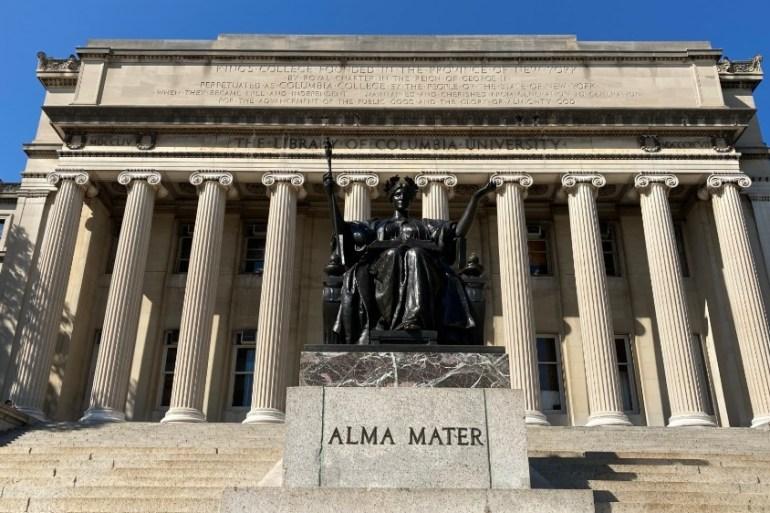Columbia University takes action against deans involved in anti-Semitic text messages, leading to their removal and institution of anti-discrimination training.
Columbia University has placed three of its deans on indefinite leave after revealing their exchange of text messages that trivialized concerns of Jewish students regarding discrimination and perpetuated anti-Semitic stereotypes. The messages were shared during a panel discussion on Jewish campus life in New York City in May. The university president, Minouche Shafik, strongly condemned the messages for their unprofessionalism and connection to age-old anti-Semitic prejudices. Following an investigation by a congressional committee, the deans in question will not be reinstated, and the university plans to implement comprehensive anti-Semitism and anti-discrimination training in the upcoming fall semester.
One of the messages suggested leveraging campus protests for fundraising, while another seemed to critique a campus rabbi’s essay on anti-Semitism. These exchanges took place shortly after police intervention to remove pro-Palestinian protesters from an administration building and dismantle a tent encampment that posed a disruption threat during graduation ceremonies.
Provost Angela V Olinto clarified that while one dean remained involved in the group chat but expressed remorse for their participation, the other three deans are permanently removed from their positions. Columbia College's Dean, Josef Sorett, who apologized for his involvement, is exempt from removal. Sorett affirmed his commitment to enhancing professionalism and rebuilding trust within the College community.
Columbia University has faced controversy since April due to the establishment of a pro-Palestine solidarity encampment by students, prompting worldwide demonstrations. University officials alleged some protesters of using anti-Semitic rhetoric and causing an unsafe environment, resulting in the arrest of over 1,000 individuals and suspension of more than 100 students.
Protest leaders contested the university's claims, placing responsibility on the university's deployment of police officers as the catalyst for endangering students. The university's response to the encampment triggered debates on free speech, safety, and the boundaries of demonstration rights.
Source: ALJAZEERA
ALJAZEERA MEDIA NETWORK
